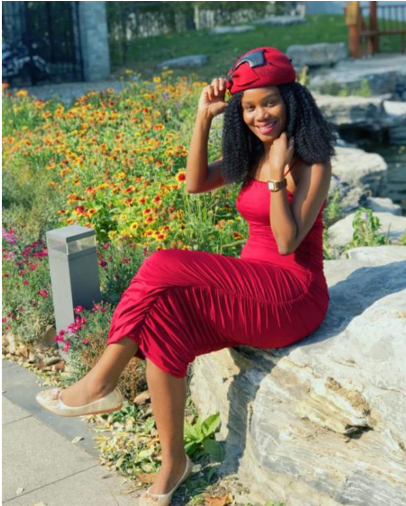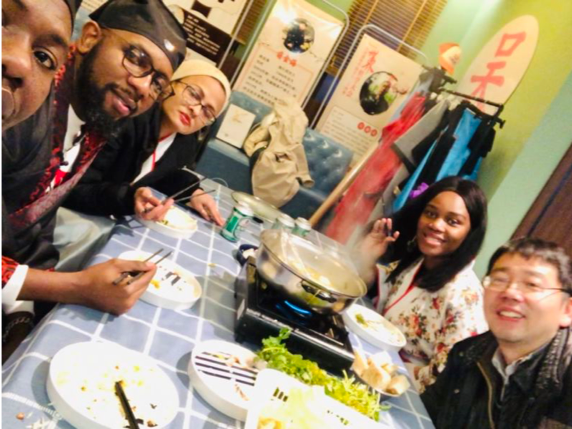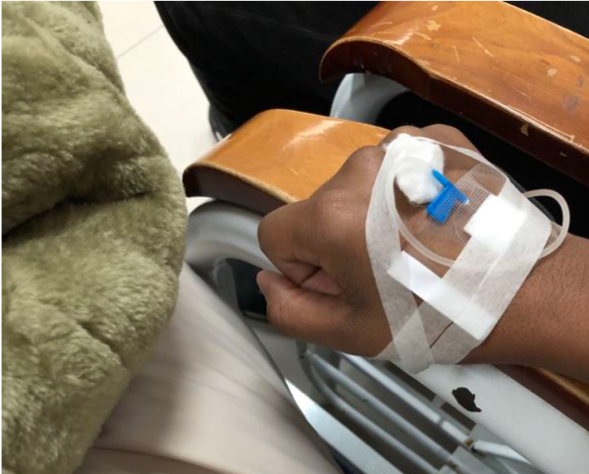The rapid spread of COVID-19 is an important reminder to the citizens of our present world that global events can’t be limited by national borders. At the beginning of the pandemic in early 2020 I had a scary experience that made me painfully aware of my own human frailty, but also of goodness and charity of others.
As an international student at CUC, I came to Beijing in September 2019 on scholarshipset up by China’s Ministry of Commerce (MOFCOM)designed to strengthen cooperation between China and developing nations, which need to upgrade the skills of their younger government officials by receiving Master’s and Ph.D.degrees.

After 3 months of classes, I thought it was time for exposure and to explore, I journeyed with my colleagues on a holiday trip to Yiwu, which turned out to be more adventurous than initially planned. After two days of shopping for our families we got invited to Shanghai by a local Chinese friend. That same evening upon arrival at our accommodation I started feeling sick.
We enjoyed a home-cooked meal of African tilapia fish, tofu, parsley and other leafy vegetables. We had a hotpot, which is a popularsocial meal served through a simmering pot of fragrant soup stock, where a variety of ingredients are cooked on a table.

We couldn’t finish the meal, because I got a severe abdominal attack with sharp pain accompanying my every breath.Since I was feeling very cold, Mr. Bob, as we called our Chinese friend, got me a huge military jacket and drove me to the hospital. The full body test results came out negative. Supposedly everything was normal.
We spent the whole night at the hospital and I was given a painkiller that could last the whole day for the duration of my return trip to Beijing. In Beijing the pain grew worse and things seemed to get no better.
The security guard took me to the emergency department for flu testing. The new coronavirus had just broken out; everyone was in panic and was wearing masks. The staff members were helpful though we couldn’t understand each otherwell.
Then I lost my data network and was out of cash unable to pay my procedures. I couldn’t find my student card nor my visa bank card in my bag so I was really worried about how I would pay for my treatment. Just as I was getting hopeless and desperate a miracle happened. An old Chinese man spoke up and asked me what was happening. His English was good and after hearing my explanation, he reached into his wallet and with a blink of an eye blessed me with a 1000 RMB. I refused to accept the money, but he insisted me to take it as a goodwill gift. He told me he knew how it felt to be alone and sick while far from home. That money was exactly sufficient to cover all my needed procedures that night at the hospital.
Even though a financial miracle had taken place, I began having other worries while spending another night at a hospital. Deep in my heart I felt traumatised, but also petrified of the new Coronavirus. Then I got referred to another doctor who placed me on a four-day treatment assuring me I would be fine.

Since I had some chest pain and shortness of breath, I was almost convinced that I had the virus, but needed to be tested for it. Thedoctorat the hospital said I didn’t have any of the COVID-19 symptoms. I broke down and thought of going back home, but then I remembered another ladydoctorwhom I felt would help me and decided to see her. She was very understanding, spoke English,and the care and hospitality of her colleagues was amazing.She understood everything and said she suspected pneumonia and sent me for a blood test. I had a small lung infection, but not a dangerous pneumonia, according to the results.
Even though I was still panicking and believing I could have the virus, after 5 days of taking the antibacterial medications, I surprisingly got well. The university also comforted me and promised me I was really OK, and that if I had the COVID virus or was even a suspected case, I would be in the hospital rather than my room. Their uplifting words helped me get through this personal health crisis. This was a profoundly terrifying experience, but I encountered wonderful people who helped me along the way.
The doctors weren’t just skilled medically; they were also friendly, easy-going people who put me at ease with their limitedEnglish and often made me smile. I also can’t forget the hospital security guard who was with me the whole night taking me from doctor to doctor, from room to room, and finally to the taxi.
I will never forget the two ladies from our building reception desk who came to my room daily to keep monitoring my temperature.

Daily messages from social media came in from home “when are you coming back? aren’t you leaving China?” People ask and probably think it is an easy decision to make, one need to consider logistics and so many other factors. But people do not seem to know how emotional this is, and how strongly one who goes through this can be affected.
Coronavirus is a highly infectious respiratory disease and it poses a threat to everyone around the world these days. Itcame as a surprise that has stricken countless global citizens in 2020, and I was no exception.Even though my test for COVID-19 came out negative, the feeling of emotional fear and physical pain at the beginning of this pandemic was a profoundly transformational experience.
In conclusion I would personally join all others around the world to applaud and recognise the Chinese government and people for the amazing leadership in combating the new crown pneumonia. The COVID-19 experience should then teach all of us to show more human understanding and empathy when dealing with others who are going through sickness, isolation, and emotional suffering. Love and solidarity are necessary for the protection of not just our immediate families, neighbours, and friends, but all those we come in contact with. Hopefully, people can realize we are all in the same boat, regardless of nationality, race, or creed, and thus learn to become better members of our global human family.
Writer : Katrina Jacob, obtained Master’s degree in International Communication at Communication University of China
For Chinese translation(中文摘译请浏览): http://icsf.cuc.edu.cn/2020/0908/c5607a172732/page.htm
